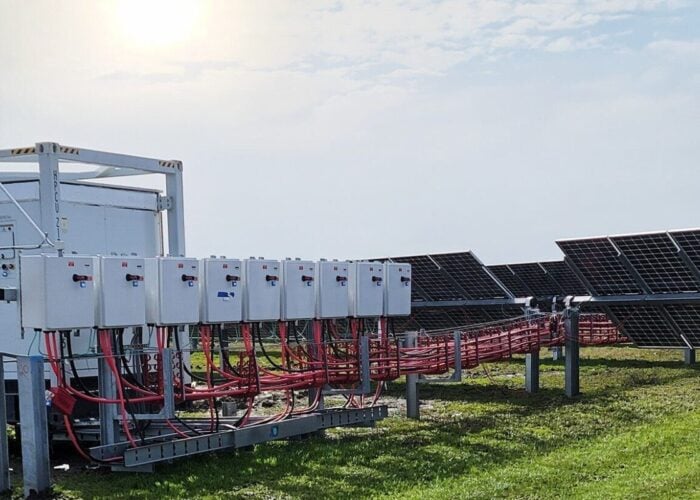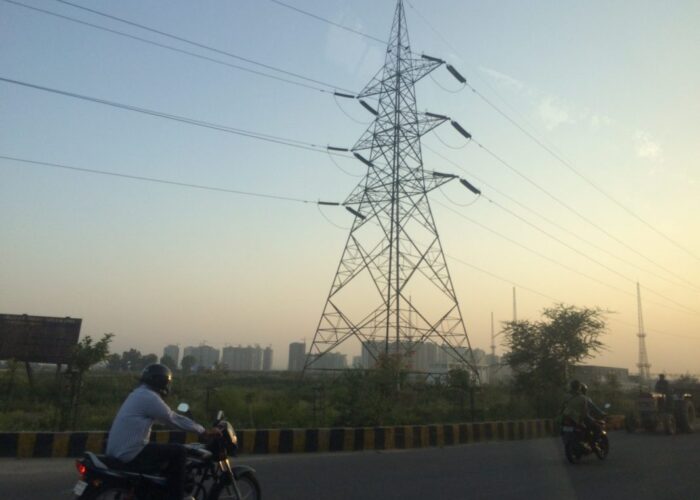Spanish Prime Minister Mariano Rajoy Brey has come to blows with a group of 11 international infrastructure funds, including those managed by HSBC and Deutsche Bank. The prime minister has pledged to Parliament to tax utilities in an attempt to raise sorely needed cash from renewable energy to curb €25 billion of debt. The financial institutions are threatening cutting investment and taking legal action if reforms are tougher on renewables than traditional energy sources, throwing further companies into bankruptcy.
Bloomberg reports the companies said, “A tax would only be acceptable if it’s the same for all technologies, based on megawatt hours and not revenue.”
Try Premium for just $1
- Full premium access for the first month at only $1
- Converts to an annual rate after 30 days unless cancelled
- Cancel anytime during the trial period
Premium Benefits
- Expert industry analysis and interviews
- Digital access to PV Tech Power journal
- Exclusive event discounts
Or get the full Premium subscription right away
Or continue reading this article for free
“The new taxes that are being considered are astronomical,” Miguel Salis, chief executive officer of Eolia Renovables SA, a Madrid-based wind and solar farm developer. “They represent 9% to 20% of gross revenue for these plants, which would create several problems, including many solar plant defaults.” As recently as May, Spanish grid operator Red Eléctrica de España revealed that energy generated from the country’s solar PV capacity accounted for 4.5% of Spain’s total electricity demand during that month.
Bloomberg estimates that PV and solar-thermal power plants could earn a tariff as much as five times higher than other renewables.
Concerns were raised by Exane BNP Paribas analysts, in a research note last month that the government could increase the current €0.50 per megawatt-hour tax on traditional generators to €5 and expand it to include renewable energy.
Such an “increase in the tax cannot be legally challenged as this tax already exists, it is an indirect tax and is non- discriminatory by technology,” Exane BNP Paribas said.
There are claims that the tariff deficit has been growing by about €3 billion each year which is being accredited to €7 billion paid in clean-energy subsidies.
In an interview with Bloomberg, Sweatman, head of Madrid-based consultancy Climate Strategy S.L. said, “Spain has an accumulated energy debt and a current energy-tariff deficit. The solutions to this unsustainable problem are a mix of increased energy prices, lower generation/connection costs and potentially fiscal measures.”
“This tax, which is what we heard initially, would be logical,” said Jorge Barredo, chairman of Unef, a PV lobby group. “A tax that is different for every technology seems illegal and discriminatory against renewables.”
As a result, shares in most Spanish companies with large clean energy interests fell today. Solaria Energia y Medio Ambiente SA was down 4.9%, Iberdrola SA (IBE) fell 3.5% and Abengoa SA (ABG) dropped 1.4% in Madrid. An announcement is expected tomorrow at the earliest.
On April 22, Spaniards marched from Santo Domingo Opera Dos de Mayo in protest of the moratorium imposed earlier this year. However the disgruntled solar industry’s demands fell on deaf ears.
Debt-laden Spain, with almost 4,300MW of PV capacity, is expected to issue an energy strategy before summer recess on July 27. Industry minister Jose Manuel Soria stated the proposal would cover nuclear and renewable power as well as the tariff-deficit.






